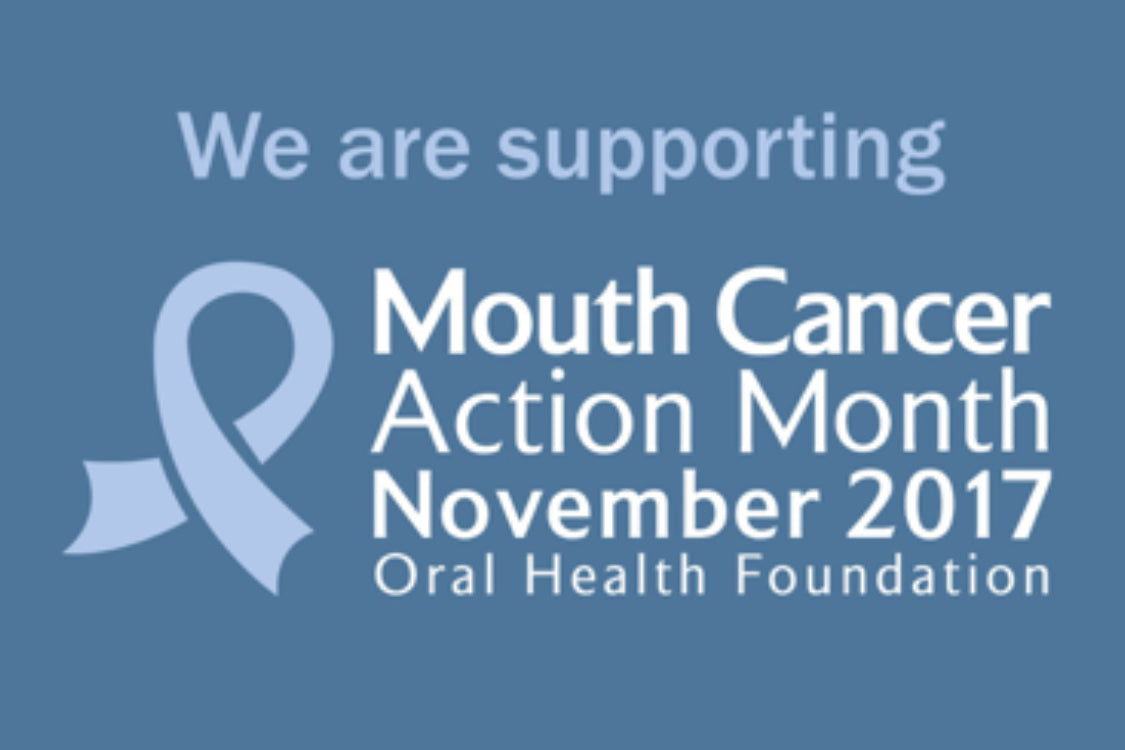As the year draws to a close, November provides a poignant reminder to all of us to take good care of our oral health and be aware of any changes in our mouths. Mouth Cancer Action Month is an important initiative that takes place every November and is greatly supported by the team here at Dentalia, as it helps us to raise awareness of dental health and give you the information you need to detect the early stages of mouth cancer – as we know that early detection really does save lives.
What is Mouth Cancer?
Mouth cancer is a type of cancer that affects the tongue, lips, cheeks and throat. It can occur in anyone, and whilst it is more common in those over the age of 40, particularly men, we are now reading that increasing numbers of younger people are being diagnosed.
It is a sad fact that more than 1800 people in the UK die each year from mouth cancer, but what is even more distressing is that many of these deaths could be prevented through early detection.
So, let’s explore the risk factors and explain what you need to look out for so that together we can help detect and prevent mouth cancer.
Are you at risk?
Those who use tobacco or drink alcohol have a greater risk of developing mouth cancer, particularly when they are consumed together. However, the lips can also be affected if they are over exposed to sunlight, so sun-worshippers need to be particularly aware of changes to the lips and ensure they use adequate sun protection.
More recently, mouth cancer has also been linked to the human papillomavirus (HPV), with many experts suggesting that it could soon overtake alcohol and tobacco as the main cause of this type of cancer. Practising safe oral sex and limiting the number of partners you have is the advice offered by the Oral Health Foundation to reduce your risk of contracting HPV.
What are the symptoms?
As with any type of cancer, the symptoms can vary from person to person, however the main things you need to look out for are changes in your mouth, tongue and lips. If you spot any of the following signs and they do not heal within three weeks, you should speak to your dentist:
- Mouth ulcers
- White or red patch in the mouth
- Unusual lumps, bumps or swelling
How can you be more #Mouthaware?

Many people put off visiting their doctor or dentist until it is too late, and that’s why Mouth Cancer Awareness Month is so important and why we wholeheartedly support it. Early detection can massively increase your chances of a cure, so what do you need to do to be more #Mouthaware and keep your mouth healthy?
- Speak to your dentist or doctor if you notice changes in your mouth, tongue or lips that do not heal within 3 weeks
- Practice a thorough oral heath routine
- Visit your dentist regularly
- Eat a balanced diet, rich in vitamins
- Cut down on smoking and drinking alcohol
How can Dentalia help?
At Dentalia we offer dental health checks and hygienist services to help you maintain a healthy smile. At your routine examination, we will check for any signs of mouth cancer and ask you about any changes you may be concerned about, helping you to stay healthy and informed.
To book an appointment or to speak to us about our full range of dental treatments and solutions please call our team on 01256 353033 or email us here.





